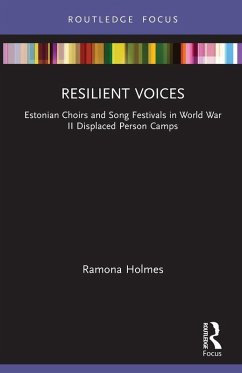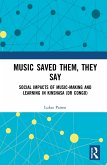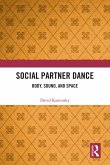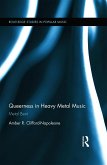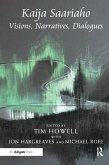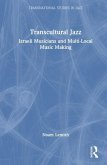The aftermath of World War II sent thousands of Estonian refugees into Europe. The years of Estonian independence (1917-1940) had given them a taste of freedom and so relocation to displaced person (DP) camps in post-war Germany was extremely painful. One way in which Estonians dealt with the chaos and trauma of WWII and its aftermath was through choral singing. Just as song festivals helped establish national identity in 1869, song festivals promoted cultural cohesiveness for Estonians in WWII displaced person camps. A key turning point in hope for the Estonian DPs was the 1947 Augsburg Song Festival, which is the center point of this book. As Estonian DPs dispersed to Australia, Canada, Europe, and the United States these choirs and song festivals gave Estonians the resilience to retain their identity and to thrive in their new homes. This history of Estonian WWII DP camp choirs and song festivals is gathered from the stories of many courageous individuals and filled with the tenacious spirit of the Estonian singing culture. This work contributes to an understanding of immigration, identity, and resilience and is particularly important within the field of music regarding music and healing, music and identity, historical musicology, ethnomusicology, and music and politics.
Hinweis: Dieser Artikel kann nur an eine deutsche Lieferadresse ausgeliefert werden.
Hinweis: Dieser Artikel kann nur an eine deutsche Lieferadresse ausgeliefert werden.
"A must-read showing the power of choral music to provide hope and unity even in the darkest of days. Dr. Holmes has preserved an important part of Estonians' lives as refugees in displaced persons camps in Germany that would otherwise have been lost."
Liina Teose, Estonian American National Council 2016 Outstanding Achievement award recipient
"Resilient Voices is a major contribution to the study of Estonian choral music and song festivals, published at a time when musicians worldwide are intensely thinking about their mission and purpose. It also fills a critical gap in the international war migration studies, a research field that, unfortunately, has expanded dramatically in recent years...This book is a valuable resource for libraries serving high school and university choral programs, and its affordable digital version will be useful in upper level undergraduate or graduate university courses about international choral repertoires, music therapy, or the culture of war refugees."
Guntis Smidchens, University of Washington, Seattle, WA, USA in the Journal of Baltic Studies (2021), Vol.52, No.4, 635-644
"Resilient Voices would be of interest to music educators desiring to know more about the history of Estonian choral music and culture, the relationship between music and war, the tie between identity and music, and the role music can play in maintaining the culture of displaced peoples. Choir directors would find the quotes and stories helpful in providing context for the works and composers mentioned in the book. Resilient Voices shares the power of song to provide hope, healing, and resilience to people displaced by war and is an important contribution to research in Estonian choral culture."
Wendy K. Moy, Syracuse University, New York
Liina Teose, Estonian American National Council 2016 Outstanding Achievement award recipient
"Resilient Voices is a major contribution to the study of Estonian choral music and song festivals, published at a time when musicians worldwide are intensely thinking about their mission and purpose. It also fills a critical gap in the international war migration studies, a research field that, unfortunately, has expanded dramatically in recent years...This book is a valuable resource for libraries serving high school and university choral programs, and its affordable digital version will be useful in upper level undergraduate or graduate university courses about international choral repertoires, music therapy, or the culture of war refugees."
Guntis Smidchens, University of Washington, Seattle, WA, USA in the Journal of Baltic Studies (2021), Vol.52, No.4, 635-644
"Resilient Voices would be of interest to music educators desiring to know more about the history of Estonian choral music and culture, the relationship between music and war, the tie between identity and music, and the role music can play in maintaining the culture of displaced peoples. Choir directors would find the quotes and stories helpful in providing context for the works and composers mentioned in the book. Resilient Voices shares the power of song to provide hope, healing, and resilience to people displaced by war and is an important contribution to research in Estonian choral culture."
Wendy K. Moy, Syracuse University, New York

